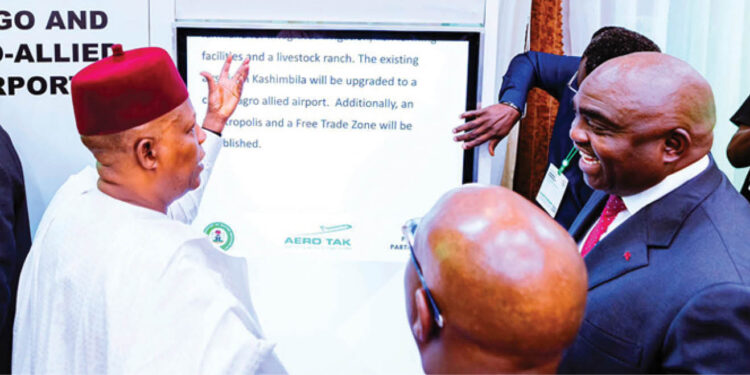The Infrastructure Concession Regulatory Commission (ICRC), has issued guidelines to govern the development and implementation of all Public-Private Partnership (PPP) projects in Nigeria.
The move the News Agency of Nigeria (NAN) reports is in a bid to overhaul Nigeria’s infrastructure delivery processes through PPPs.
Dr Jobson Ewalefoh, the Director-General(D-G), ICRC, disclosed this in a statement issued by Ifeanyi Nwoko, the Acting Head of Media and Publicity, ICRC in Abuja on Sunday.
Ewalefoh said the new framework was unveiled during a high-level stakeholders’ engagement with representatives from all Ministries, Departments, and Agencies (MDAs) of the Federal Government directly involved in PPPs.
He said the framework was released under the statutory powers conferred on the commission by the ICRC Act, 2005, and in compliance with the Presidential directive.
Ewalefoh said the guidelines provided directions and requirements to set up the Project Approval Board for the new approval thresholds of under N20 billion for ministries and under N10 billion for agencies and parastatals as approved by the president.
“It provides steps for preparing the Outline Business Case (OBC), Full Business Case (FBC) and financial model; guides the procurement routes, and PPP agreement, among others.”
The D-G presented the guidelines, took stakeholders through each section, responded to questions, and clarified points to ensure a clear understanding.
He said that the new guidelines were in response to President Bola Tinubu’s vision to liberalise the economy.
Ewalefoh added that the guidelines also aligned with the president’s directive to the ICRC to seek innovative ways to attract private sector finance to build infrastructure through PPPs.
“These rules establish a definitive framework for the conception, development, and execution of PPP projects in Nigeria.
“They decentralise project approvals to empower MDAs for faster delivery while safeguarding the ICRC’s role as regulator of PPPs in Nigeria.
“Every PPP project, regardless of sector, scale, or origin, must strictly comply with these provisions.
“Every project shall be subjected to our due diligence and compliance requirements,” he said.
The D-G re-emphasised the role of the ICRC as a regulator of PPPs and not an operator or Grantor of projects.
Ewalefoh informed the participants that the commission would continually facilitate and coordinate negotiations between MDAs and Private Proponents to ensure that the terms and conditions of agreements were fair to the parties and implementable.
He underscored that the Presidency’s decision to delegate greater approval authority to MDAs, with ICRC regulating the process, also came with heightened accountability and zero tolerance for non-compliance.
Ewalefoh reaffirmed the commission’s commitment to collaborate with MDAs, private investors, financiers, and development partners to reposition Nigeria as the continent’s leading destination for bankable and transformative PPP projects.
At the end of the engagement, participants expressed strong support for the reforms and a readiness to immediately begin implementing the new guidelines.
























